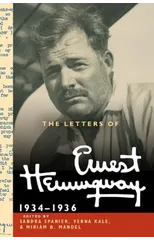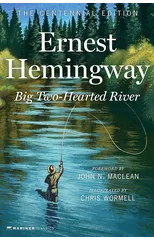Set in the Gulf Stream off the coast of Havana, Hemingway's magnificent fable is the story of an old man, a young boy and a giant fish. Here, in a perfectly crafted story, is a unique and timeless vision of the beauty and grief of man's challenge to the elements in which he lives. Not a single word is superfluous in this widely admired masterpiece, which once and for all established his place as one of the giants of modern literature. Here, for a change, is a fish tale that actually does honour to the author. In fact The Old Man and the Sea revived Ernest Hemingway's career, which was foundering under the weight of such post-war stinkers as Across the River and into the Trees. It also led directly to his receipt of the Nobel Prize in 1954.
Ernest Hemingway
Ernest Hemingway (1899-1961) was an American novelist, short story writer, and journalist known for his distinctive writing style and portrayal of masculinity. His most notable works include "The Old Man and the Sea," "A Farewell to Arms," and "The Sun Also Rises." Hemingway's writing is characterized by its spare prose, realistic dialogue, and emphasis on themes of war, love, and loss. He is credited with revolutionizing the modern American novel and influencing generations of writers with his minimalist approach to storytelling. "The Old Man and the Sea," a novella about an aging fisherman's struggle with a marlin, remains one of Hemingway's most famous and enduring works, winning him the Pulitzer Prize for Fiction in 1953 and solidifying his reputation as a literary giant.






